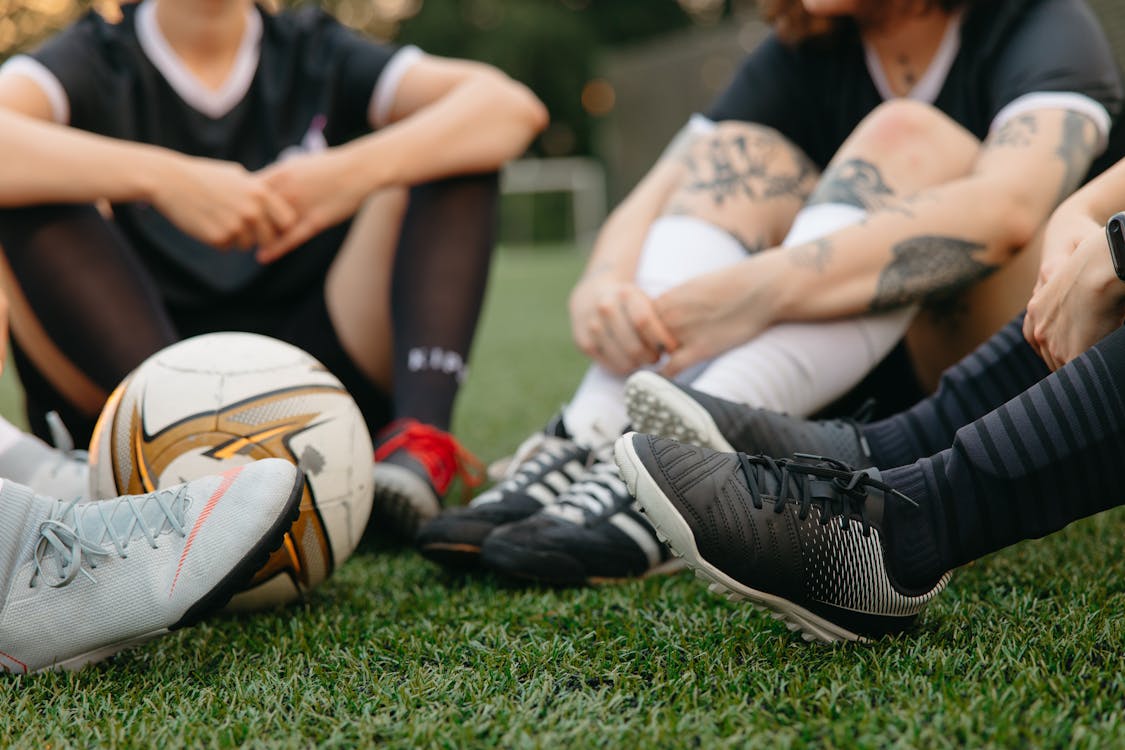Advanced Football Training Tips for Serious Players
Advanced Football Training Tips for Serious Players
For serious football players looking to elevate their game, basic drills and casual practice sessions are no longer enough. Advanced football training requires dedication, strategy, and a focus on both physical conditioning and mental sharpness. Below are some key advanced football training tips designed to help players push past their limits and develop the skills necessary to excel on the field.

1. Enhance Agility and Speed with Plyometrics
Agility and speed are crucial in football, as they allow you to evade defenders, change direction quickly, and accelerate when needed. Plyometric exercises, which involve explosive movements like jumps and bounds, are highly effective for developing these abilities.
Key Plyometric Exercises:
- Box Jumps: Improve vertical leap and leg power.
- Lateral Bounds: Strengthen lateral movement and coordination.
- Depth Jumps: Train for explosive takeoff and better reaction time.
Incorporating these exercises into your training will not only increase your speed but also improve your ability to change direction quickly, giving you an edge in both offensive and defensive plays.
2. Improve Stamina with High-Intensity Interval Training (HIIT)
Football requires bursts of high-intensity activity followed by periods of rest. High-Intensity Interval Training (HIIT) mirrors this by alternating between short, intense exercises and lower-intensity recovery periods. This type of training is ideal for boosting endurance and preparing your body for the constant shifts in intensity during a game.
Sample HIIT Workout:
- Sprint for 30 seconds, followed by a jog or walk for 60 seconds. Repeat for 10–12 sets.
- Add variety by mixing in burpees, mountain climbers, and jump squats during high-intensity intervals.
HIIT can dramatically improve cardiovascular fitness, enabling you to maintain peak performance throughout the entire match.
3. Work on Ball Control and First Touch
At an advanced level, having exceptional ball control is non-negotiable. Improving your first touch is particularly important, as it allows you to maintain possession, set up plays, and execute accurate passes under pressure.
Drills to Enhance Ball Control:
- Wall Passes: Practice controlling the ball as it rebounds off a wall, focusing on how your first touch sets you up for the next move.
- Cone Dribbling: Set up cones and practice tight dribbling patterns to improve your ability to maneuver the ball in small spaces.
- Juggling: Regular juggling drills help with touch and coordination.
Mastering these drills will make it easier for you to play smoothly under pressure, especially when you’re tightly marked by defenders.
4. Master Tactical Awareness and Game IQ
Football isn’t just about athleticism; it’s a tactical game that requires players to think quickly and anticipate their opponents’ moves. Developing your game IQ means understanding formations, positioning, and reading the flow of the match.
How to Improve Tactical Awareness:
- Watch Professional Games: Study how top-level players move without the ball, how they position themselves, and how they transition between attack and defense.
- Film Your Own Games: Reviewing your own games or training sessions helps identify areas where you can improve your positioning or decision-making.
- Learn Multiple Positions: Even if you specialize in one position, learning the roles of other positions gives you a better understanding of how the whole team operates.
By improving your tactical awareness, you will be able to make smarter decisions on the field, giving you a tactical advantage over your opponents.
5. Focus on Strength Training for Power and Endurance
While speed and agility are essential, strength is equally important in football. Being physically strong allows you to shield the ball, win tackles, and maintain balance when making explosive movements. Strength training should be a regular part of your routine to ensure you’re physically prepared for the demands of the game.
Key Strength Exercises:
- Squats: Build lower body strength for better sprinting, jumping, and tackling.
- Deadlifts: Strengthen your core and legs, improving overall stability and explosiveness.
- Bench Press: Enhance upper body strength, which is critical for shielding the ball and holding off opponents.
- Core Work: Focus on exercises like planks and Russian twists to strengthen your core, which helps with balance and stability during quick movements.
Strength training will make you more resilient on the field and help prevent injuries by increasing your overall muscle endurance.
6. Work on Passing and Vision with Advanced Drills
Accurate passing and sharp vision are what set great football players apart from the rest. Advanced players must be able to deliver precise passes over both short and long distances, as well as anticipate the movements of teammates and opponents.
Passing Drills to Consider:
- One-Touch Passing: Practice quick, accurate one-touch passes with a partner to improve speed and timing.
- Long Ball Accuracy: Set up targets at different distances and practice delivering accurate long balls. This helps with switching play or creating scoring opportunities from deep positions.
- Cross-Field Drills: Improve your ability to pass to a teammate across the pitch by simulating game scenarios.
Having excellent vision and passing ability will enable you to create opportunities for your team and break down the opposition’s defense.
7. Develop Mental Toughness and Focus
At higher levels of football, mental strength is just as important as physical ability. Maintaining composure under pressure, staying focused throughout the game, and having the confidence to make quick decisions are crucial for success.
Tips for Building Mental Toughness:
- Visualization: Before a game, take time to visualize yourself performing well in key moments. This technique can boost your confidence and focus.
- Mindfulness and Breathing Exercises: These can help calm your nerves and improve your focus, especially during high-pressure situations like penalty kicks or defending a lead.
- Positive Self-Talk: Stay mentally strong by practicing positive affirmations and maintaining a confident mindset, even when things aren’t going your way.
By developing mental resilience, you’ll be better equipped to handle the challenges that come with competitive football, including overcoming setbacks and staying focused in critical moments.
8. Recovery and Injury Prevention
At the advanced level, recovery is an essential part of your training regimen. Proper recovery not only helps you avoid injuries but also ensures that you perform at your best in every game and training session.
Key Recovery Practices:
- Stretching and Mobility Work: Focus on dynamic stretching before workouts and static stretching afterward to maintain flexibility and reduce the risk of injury.
- Foam Rolling: This helps to alleviate muscle tightness and improve blood flow to sore areas.
- Hydration and Nutrition: Staying hydrated and consuming a balanced diet rich in protein, healthy fats, and carbohydrates is critical for muscle repair and overall recovery.
- Rest: Ensure you’re getting adequate sleep each night and take rest days to allow your body to heal and recover from intense training sessions.
Prioritizing recovery will keep you in top shape and reduce your risk of missing time due to injury.
Conclusion
Becoming an advanced football player requires more than just natural talent. To elevate your game, focus on improving agility, speed, strength, ball control, and tactical awareness. Incorporate high-intensity training, advanced drills, and mental conditioning to become a well-rounded player. By dedicating yourself to advanced training techniques, you can consistently perform at your best and make a significant impact on the field.
FAQs
1. How often should I train as a serious football player?
It’s recommended to train at least 5–6 times per week, incorporating a mix of physical conditioning, skill drills, and recovery sessions.
2. What is the best way to improve ball control?
The best way to improve ball control is through consistent practice using drills like wall passes, cone dribbling, and juggling. Focusing on your first touch is key.
3. How can I increase my stamina for football?
Incorporate HIIT, long-distance running, and sprint intervals into your training routine to build stamina and improve cardiovascular fitness.
4. What’s the most effective strength training exercise for football players?
Squats are highly effective because they build leg strength, which is essential for sprinting, jumping, and tackling. Deadlifts and core exercises are also important.
5. How can I improve my tactical awareness during games?
Watching professional matches, studying tactics, and reviewing your own game footage are great ways to improve tactical awareness. Understanding various positions and formations will also help.

